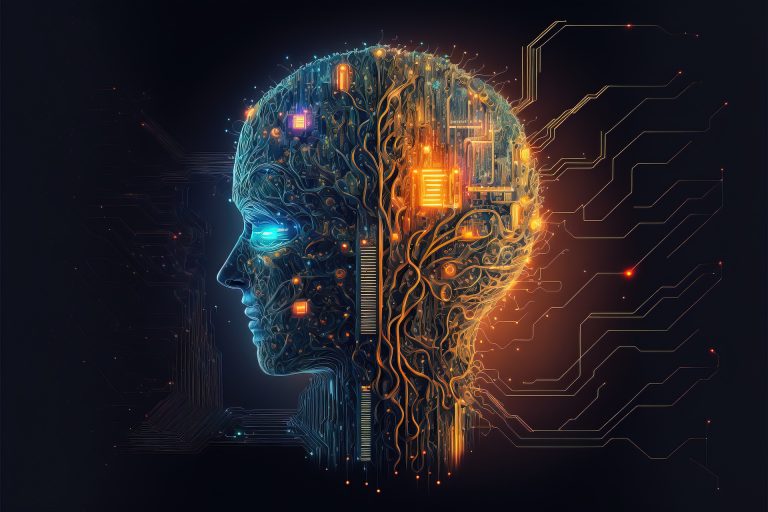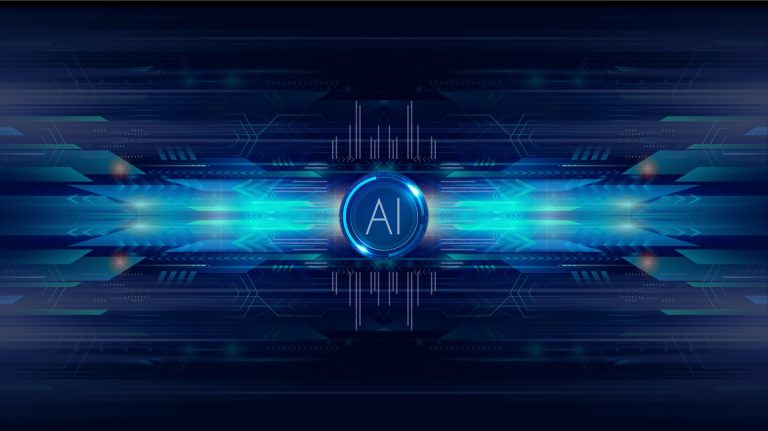Artificial Intelligence: A Comprehensive Examination of Theory, Applications, and Ethical Implications

Artificial Intelligence (AI) represents a transformative force reshaping virtually every aspect of human society, from healthcare and finance to transportation and entertainment. Here we shall see the comprehensive overview of AI, encompassing its theoretical foundations, practical applications, and ethical considerations. Drawing upon insights from computer science, cognitive psychology, and philosophy, we explore the mechanisms of AI algorithms, the development of intelligent systems, and the societal impacts of AI technologies. Additionally, we examine ethical dilemmas and policy challenges arising from the proliferation of AI, offering insights into responsible AI development and governance.

Introduction:
Overview of Artificial Intelligence and its significance: Artificial Intelligence (AI) refers to the simulation of human intelligence by machines, enabling them to perform tasks that typically require human intelligence, such as reasoning, problem-solving, learning, and perception. AI technologies have transformative potential across various domains, including healthcare, finance, transportation, and entertainment, revolutionizing how we live, work, and interact with the world.
Historical evolution of AI research: The quest to create intelligent machines dates back to antiquity, but modern AI research emerged in the mid-20th century with the development of symbolic AI, expert systems, and early machine learning techniques. Over the decades, AI has witnessed exponential growth, driven by advances in computing power, data availability, and algorithmic innovation.
Objectives and structure of the research paper: This research paper aims to provide a comprehensive overview of Artificial Intelligence, covering its theoretical foundations, practical applications, ethical implications, and governance challenges. By synthesizing insights from diverse disciplines, including computer science, cognitive psychology, philosophy, and ethics, we seek to illuminate the multifaceted nature of AI and its profound impact on society.
Foundations of Artificial Intelligence:
Definition and scope of Artificial Intelligence: AI encompasses a broad spectrum of techniques and methodologies aimed at replicating human-like intelligence in machines. This includes symbolic reasoning, pattern recognition, learning from experience, and autonomous decision-making.
Classical approaches to AI: Early AI systems relied on symbolic manipulation and rule-based reasoning to emulate human problem-solving. Expert systems, developed in the 1970s and 1980s, codified human expertise in specific domains using symbolic representations and inference rules.
Emergence of machine learning: Machine learning represents a paradigm shift in AI, emphasizing the use of statistical techniques to enable machines to learn from data. This includes supervised learning, unsupervised learning, and reinforcement learning, which have revolutionized fields such as computer vision, natural language processing, and robotics.
Deep learning revolution: Deep learning, a subset of machine learning based on artificial neural networks, has propelled AI to new heights of performance and scalability. Deep neural networks, inspired by the structure and function of the human brain, have achieved remarkable success in tasks such as image recognition, speech recognition, and language translation.

AI Algorithms and Techniques:
Supervised learning: In supervised learning, algorithms learn to map input data to output labels based on labeled training examples. This includes classification tasks, where the goal is to predict discrete labels, and regression tasks, where the goal is to predict continuous values.
Unsupervised learning: Unsupervised learning aims to identify hidden patterns or structures in unlabeled data. This includes clustering algorithms, which group similar data points together, and dimensionality reduction techniques, which reduce the complexity of high-dimensional data.
Reinforcement learning: Reinforcement learning involves training agents to interact with an environment to maximize cumulative rewards. Agents learn through trial and error, receiving feedback in the form of rewards or penalties for their actions.
Natural language processing (NLP): NLP techniques enable the machine to detect and understand, interpret the required information, and generate human language. This includes tasks such as sentiment analysis, named entity recognition, and machine translation, as well as advanced techniques like neural language models and transformer architectures.
Practical Applications of Artificial Intelligence:
Healthcare: AI is revolutionizing healthcare by enabling early disease detection, personalized treatment planning, and medical image analysis. Machine learning algorithms are used to analyze medical images, predict patient outcomes, and assist clinicians in diagnosis and treatment decisions.
Finance: In the finance industry, AI is used for algorithmic trading, fraud detection, and risk management. Machine learning models analyze financial data to identify patterns, detect anomalies, and optimize investment strategies, leading to improved efficiency and risk mitigation.
Transportation: Autonomous vehicles powered by AI algorithms are poised to transform transportation by enhancing safety, efficiency, and accessibility. Self-driving cars, drones, and delivery robots use sensors and machine learning algorithms to perceive their environment, navigate complex scenarios, and make real-time decisions.
Entertainment: AI technologies are reshaping the entertainment industry through content recommendation systems, virtual assistants, and game AI. Recommendation algorithms analyze user preferences and behavior to personalize content recommendations, while virtual assistants like Siri and Alexa use natural language processing to interact with users and perform tasks.

Ethical and Societal Implications of Artificial Intelligence:
Bias and fairness: AI algorithms can exhibit biases and discriminate against certain groups or individuals, perpetuating social inequalities. Addressing bias and promoting fairness in AI systems is essential to ensure equitable outcomes and mitigate harm.
Privacy and surveillance: The widespread deployment of AI technologies raises concerns about data privacy, surveillance, and algorithmic accountability. Facial recognition technology, in particular, has sparked debates about individual privacy rights, government surveillance, and the erosion of civil liberties.
Autonomous systems: Ethical dilemmas arise in the development and deployment of autonomous systems, such as autonomous vehicles, drones, and military AI. Questions of moral responsibility, decision-making transparency, and human oversight must be addressed to ensure the safe and ethical use of autonomous technologies.
Employment and labor: The automation of jobs by AI technologies has profound implications for employment and labor markets. While AI can enhance productivity and create new job opportunities, it also raises concerns about job displacement, income inequality, and the need for workforce retraining and reskilling initiatives.
Responsible AI Development and Governance:
Ethical AI design principles: Principles such as transparency, accountability, fairness, and safety serve as guiding principles for responsible AI development. Ethical considerations should be integrated into every stage of the AI lifecycle, from data collection and model training to deployment and monitoring.
Regulatory frameworks: Governments and international organizations are developing regulatory frameworks to govern AI development and deployment. These frameworks aim to balance innovation with ethical considerations, promote transparency and accountability, and protect individual rights and societal interests.
Corporate responsibility: AI companies have a responsibility to uphold ethical standards, prioritize user well-being, and ensure the responsible use of AI technologies. This includes implementing ethical guidelines for AI research and development, practicing data stewardship, and engaging with stakeholders to address ethical concerns.
Public engagement and participation: Inclusive approaches to AI governance involve engaging diverse stakeholders, including policymakers, industry experts, civil society organizations, and affected communities. Stakeholder consultations, public debates, and participatory decision-making processes can help build trust, foster collaboration, and promote shared responsibility in AI governance.

Future Directions and Challenges in Artificial Intelligence:
Advancements in AI research: Future directions in AI research include exploring advanced techniques such as quantum computing, explainable AI, and neuro-symbolic systems. These developments aim to enhance AI capabilities, improve model interpretability, and address complex real-world problems.
Ethical challenges: Ethical challenges in AI research and deployment include addressing bias and discrimination, preserving human autonomy and dignity, and mitigating existential risks associated with advanced AI systems. Ethical reflection and interdisciplinary collaboration are essential to navigate these challenges and ensure the responsible development and use of AI technologies.
Interdisciplinary collaboration: Collaboration across disciplines, including computer science, ethics, sociology, psychology, and law, is critical to address the multifaceted challenges of AI. Interdisciplinary research teams can bring diverse perspectives, expertise, and methodologies to bear on complex AI issues, fostering innovation and responsible AI development.
Global cooperation: International cooperation and coordination are essential to develop shared norms, standards, and regulations for AI governance. Multilateral initiatives can facilitate knowledge sharing, capacity building, and collective action to address global AI challenges and promote ethical and inclusive AI development.
Conclusion:
Summary of key findings: Artificial Intelligence represents a transformative force with vast potential to shape the future of humanity. From its theoretical foundations to its practical applications and ethical implications, AI touches upon virtually every aspect of human society, raising profound questions about the nature of intelligence, autonomy, and ethical responsibility.
Reflections on transformative potential: The transformative potential of AI offers unprecedented opportunities for innovation, progress, and human flourishing. However, realizing this potential requires thoughtful consideration of ethical values, societal impacts, and governance mechanisms to ensure that AI serves the common good and respects human dignity and rights.
Call to action: As we stand at the forefront of the AI revolution, it is incumbent upon us to engage in ethical reflection, interdisciplinary collaboration, and inclusive dialogue to shape the future of AI for the benefit of mankind. By working together to address the challenges and opportunities of AI, we can harness its transformative power to create a more equitable, sustainable, and prosperous world.

